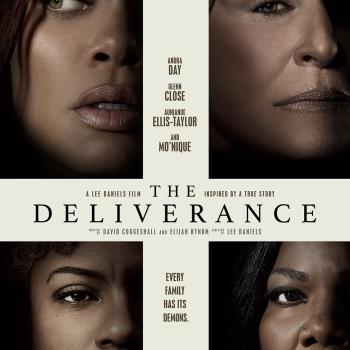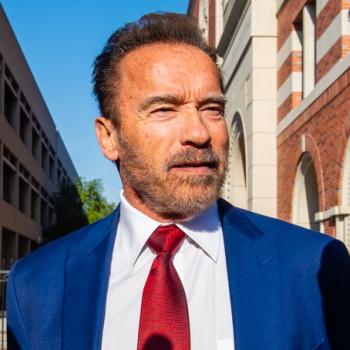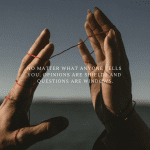We all want to make a good impression in life, to be the best possible people that we can be. Yet, sometimes we let ourselves down.
Despite our best intentions to be shining examples of love, happiness and good vibes, we occasionally get worn down—by the struggles at work, by the demands of the kids, or by the myriad stresses of everyday life, which can leave us feeling tired and cranky (a state I know all too well).
Yet if we can’t be our best possible self, we need to, at worst, try to remain on an even keel. There’s a quote by the Dalai Lama that I think sums up this “do no harm” attitude that I’m talking about:
Our prime purpose in this life is to help others. And if you can’t help them, at least don’t hurt them.
Don’t be a jerk.
The above, harsher reiteration of the Dalia Lama’s sentiment comes from the marketer, and occasional life philosopher, Seth Godin. He informs us that the word jerk comes from the idea of pulling hard on the reins, suddenly and without care. In Godin’s words, “horses don’t like it and neither, it turns out, do people.”
This is never truer than when we are in a position of power, whether we’re playing the role of supervisor at work, mom or dad at home, or in situations where we’re dealing with people in a service capacity, be they be waiters, tellers or customer service reps. Godin asks us:
In the moment, when you have power, no matter how momentarily, how will you choose to act? More than just about anything else, what you do when you have the chance is what people say about you and remember about you. (People) pay careful attention to the restraint (or lack of it) that you show when the opportunity arises.
The world owes you nothing.
The issue for some of us may be our view of the world—and what we expect from the people in it. We may think we’re owed something for our good intentions, but are we? To paraphrase Thomas Moore in his book Writing in the Sand, we too often take a banker’s view of life, believing that if we don’t get out as much as we put in, we’re being cheated.
This idea is reinforced in Godin’s book What To Do When It’s Your Turn (and it’s always your turn), where the author quotes his friend Rohan Rajiv:
A lot of human unhappiness is caused by thoughts of what the world and the people in it owe us. These thoughts are caused by the world view, “I am a good person, I’ve done good for ________, so they owe me for it.”
Godin points out that our worldview is much healthier when we internalize the following two truths:
- Nobody owes you anything (no, not even a thank you)
- It is actually you who owe the world.
We are here to be of service, to our families, and the friends, neighbors and co-workers we encounter each day. Is there any greater purpose in life? The late businessman and philosopher John Templeton believed that each of us is a partner with the universe through our thoughts, intentions, purposes and desires. He poses this question to us:
Are the abilities, talents, intelligence and material success with which we are blessed returned to the world in some meaningful way that will benefit humanity?
This theme is continued in these remarks from Ohio governor and former presidential candidate John Kasich. While on the campaign I read one of his speeches and found his words compelling:
You’re here a moment in time, and your job is to find the purpose that you have. Your job is to live life a little bit bigger than yourself. Your job is to be a center of healing, and justice, and hope in whatever way you can.
What are the good deeds you were meant to do? What are you giving to life? To again quote John Templeton:
The person who thinks good thoughts and feels good emotions, and sees only the good in life and in people will remember only good and express only good. The moment we recognize that we are one with the spirit of infinite love, we can become so filled with love that we behold only the good in all.
Amen, John, amen.

















